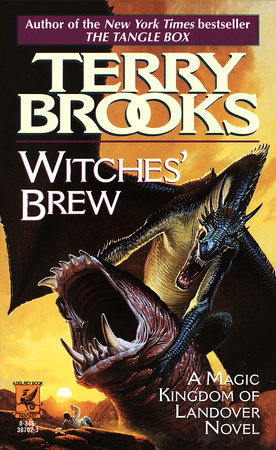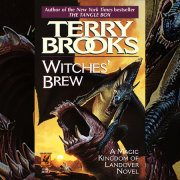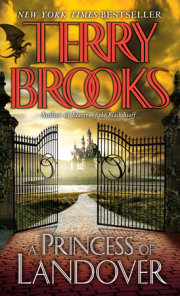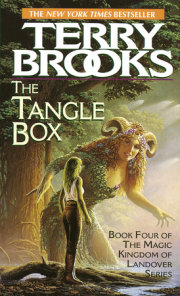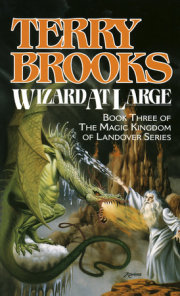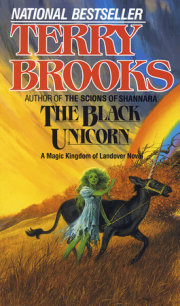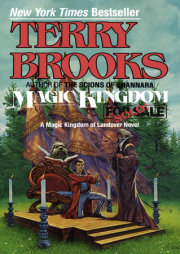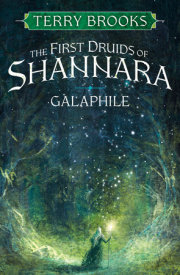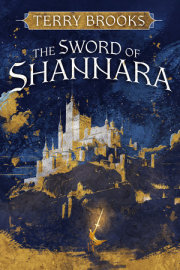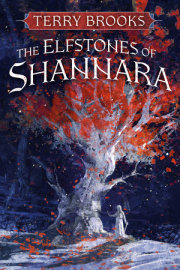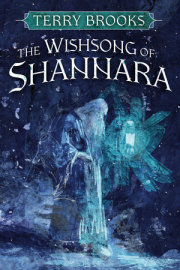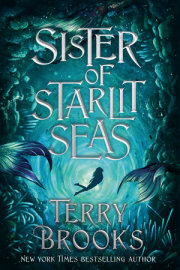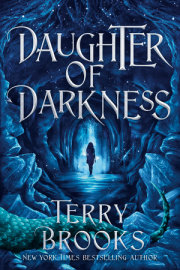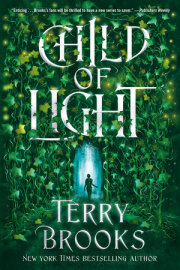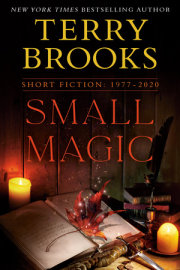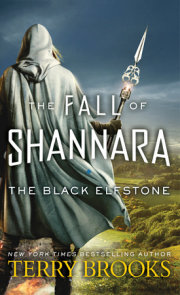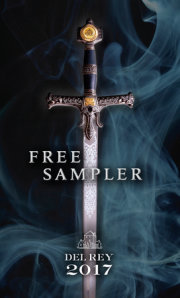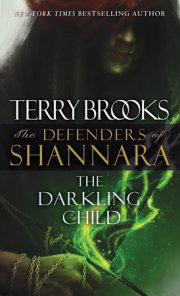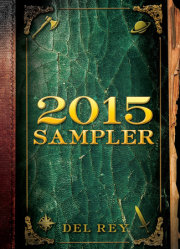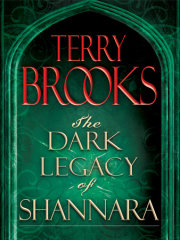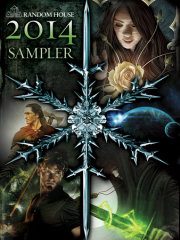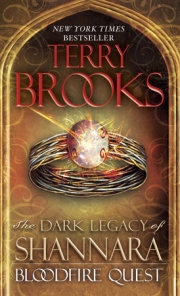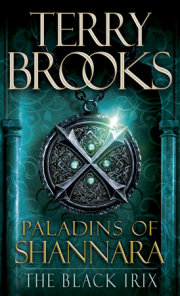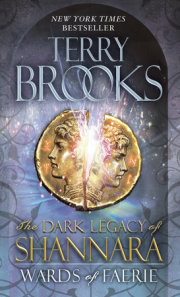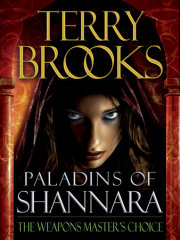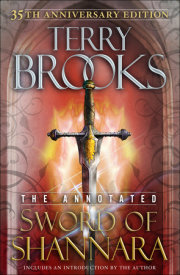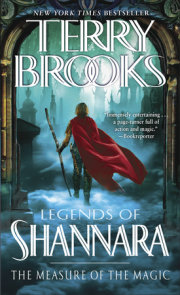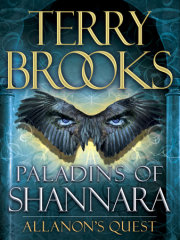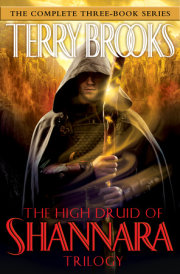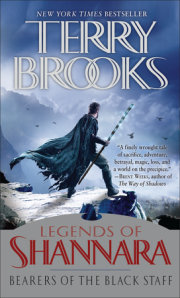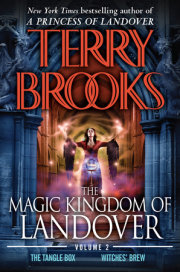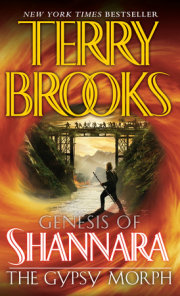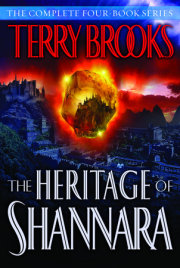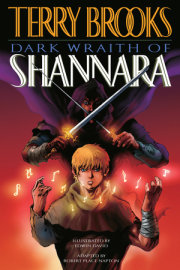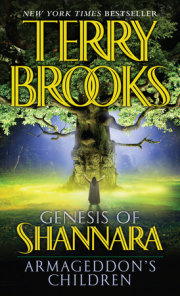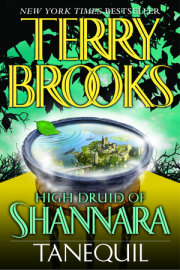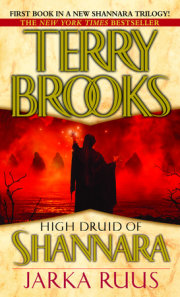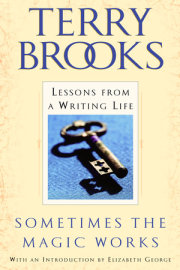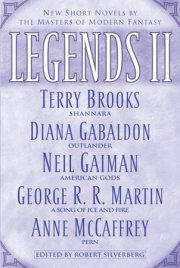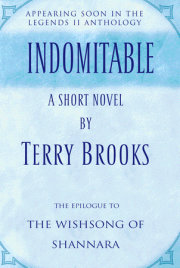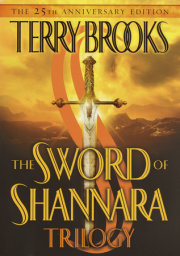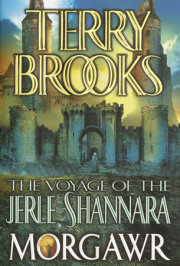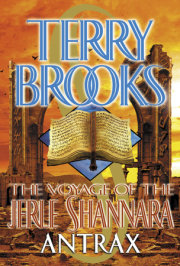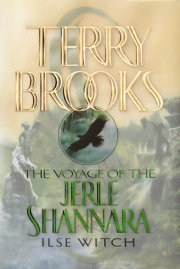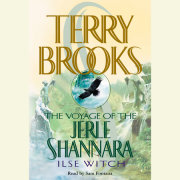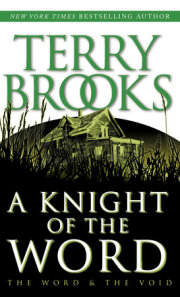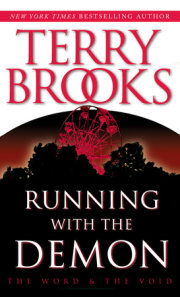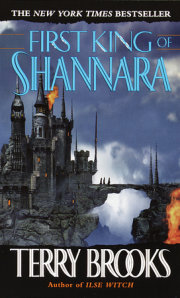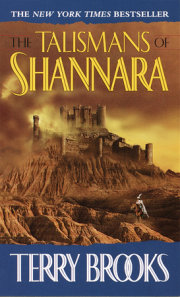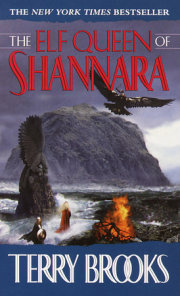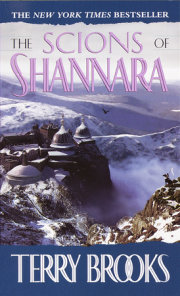Mistaya
The crow with the red eyes sat on a branch in the towering old white oak where the leafy boughs were thickest and stared down at the people gathered for their picnic in the sunny clearing below. That was what Holiday called it, a picnic. A brightly colored cloth was spread out on the lush spring grass, and the contents of several baskets of food were being emptied onto it. The food, if you were human and possessed of an appetite, would have pleased and delighted, the crow supposed. There were platters of meats and cheeses, bowls of salad and fruit, loaves of bread, and flasks of ale and chilled water. There were plates and napkins set around for each participant and cups for drinking and utensils for eating. A vase of wildflowers had been placed at the center of the feast.
Willow was doing most of the work, the sylph with the emerald tresses and small, lithe form. She was animated, laughing and talking with the others as she worked. The dog and the kobold helped her: Abernathy, who was Landover’s Court Scribe, and Parsnip, who did most of the castle’s cooking. Questor Thews, the ragtag white-bearded wizard, wandered about looking in amazement at sprigs of new growth and strange wildflowers. Bunion, the other kobold, the dangerous one, the one who could spy out almost anything, patrolled the clearing’s perimeter, ever watchful.
The King sat alone at one end of the bright cloth. Ben Holiday, High Lord of Landover. He was staring out into the trees, lost in thought. The picnic was his invention, something they did in the world from which he came. He was introducing it to the others, giving them a new experience. They seemed to be enjoying it more than he was.
The crow with the red eyes sat perfectly still within the concealment of the branches of the old oak, cognizant of the adults but really interested only in the child. Other birds, some more dazzling in their plumage, some more sweet with their song, darted through the surrounding woods, flitting from here to there and back again, mindless and carefree. They were bold and heedless; the crow was purposefully invisible. No eye but the child’s would be cast; no attention but the child’s would be drawn. The crow had been waiting more than an hour for the child to notice it, for its unspoken summons to be heeded, for its silent command to be obeyed, and for the brilliant green eyes to be drawn upward into the leafy shadows. The child was walking about, playing at this and that, seemingly aimless but already searching.
Patience, then, the crow with the red eyes admonished. As with so much in life, patience.
Then the child was directly below, the small face lifting, the dazzling green eyes seeking and abruptly finding. The child’s eyes locked on the crow’s, emerald to crimson, human to bird. Words passed between them that did not need speaking, a silent exchange of thoughts on being and having, on want and loss, on the power of knowledge and the inexorable need to grow. The child stood as still as stone, staring up, and knew there was something vast and wondrous to be learned if the proper teacher could be found.
The crow with the red eyes intended to be that teacher.
The crow was the witch Nightshade.
Ben Holiday leaned back on his elbows and let the smells of the picnic lunch bring a growl to his empty stomach. Breakfast had been hours ago, and he had been careful to refrain from eating anything since. Thank goodness the wait was almost over. Willow was unpacking the containers and setting them out, aided by Abernathy and Parsnip. Soon it would be time to eat. It was a perfect summer day for a picnic, the sky clear and blue, the sun warming the earth and the new grasses, chasing memories of winter’s chill into the past once more. Flowers were blooming, and leaves were thick again in the trees. The days were stretching out farther as midsummer neared, and Landover’s colored moons were chasing each other for increasingly shorter periods of time across the darkened heavens.
Willow caught his eye and smiled at him, and he was instantly in love with her all over again, as if it were the first time. As if they were meeting in the midnight waters of the Irrylyn and she was telling him how they were meant for each other.
“You might lend a hand, wizard,” Abernathy snapped at Questor Thews, interrupting Ben’s thoughts, obviously peeved that the other was doing none of the work in setting out the lunch.
“Hmmm?” Questor looked up from a strange purple and yellow wildflower, oblivious. The wizard always looked as if he were oblivious, whether in fact he was or not.
“Lend a hand!” Abernathy repeated sharply. “Those who don’t do the work don’t eat the food—isn’t that how the fable goes?”
“Well, no need to get huffy about it!” Questor Thews abandoned his study for the more pressing need of appeasing his friend. “Here, that’s not the way to do that! Let me show you.”
They went back and forth for a few more moments, then Willow intervened, and they settled down. Ben shook his head. How many years now had they been going at each other like that? Ever since the wizard had changed the scribe into a dog? Even before? Ben wasn’t sure, in part because he was the newcomer to the group and the history wasn’t entirely clear even now and in part because time had lost meaning for him since his arrival from Earth. Assuming a separateness of Landover from Earth, he amended, an assumption that was perhaps more theoretical than factual. How, after all, did you define a boundary that was marked not by geographical landmarks or proper surveys but by fairy mists? How did you differentiate between soils that could be crossed in a single step, but not without words or talismans of magic? Landover was here and Earth there, pointing right and left, but that didn’t begin to explain the distance between them.
Ben Holiday had come into Landover when his hopes and dreams for a life in his old world had dried to dust, and reason had given way to desperation. Purchase a magic kingdom and find a new life, the ad in Rosen’s Christmas catalogue had promised. Make yourself King of a land where the stories of childhood are real. The idea was unbelievable and at the same time irresistible. It called for a supreme act of faith, and Ben had heeded that call in the manner of a drowning man reaching for a lifeline. He had made the purchase and crossed into the unknown. He had come to a place that couldn’t possibly exist and had found that it did. Landover had been everything and nothing like what he had expected. It had challenged him as he had not thought anything could. But ultimately it had given him what he needed: a new beginning, a new chance, a new life. It had captured his imagination. It had transformed him completely.
It continued to baffle him, though. He was still trying to understand its nuances. Like this business of time’s passage. It was different here from his old world; he knew that from having crossed back and forth on more than one occasion and finding seasons out of synch. He knew it, too, from the effect it had on him—or the lack thereof. Something was different in the way he aged over here. It was not a progressive process, a steady rate of change, minute by minute, hour by hour, and so forth. It was difficult to believe, but sometimes he did not age at all. He had only suspected that before, but he was certain of it now. This was a deduction arrived at not from observing his own rate of growth, which was not easily measured because he lacked objectivity and distance.
No, it was from observing Mistaya.
He looked over for her. She stood in front of a massive old white oak, staring upward into its branches, her gaze intense. His brow furrowed as he watched her. If there was one word he would use to describe his daughter, that was probably it. “Intense.” She approached everything with the single-mindedness of a hawk in search of prey. No lapses in concentration or distractions were allowed. When she focused on something, she gave it her complete attention. Her memory was prodigious and perhaps required that she study a thing until it was hers. It was strange behavior in a small child. But then, Mistaya herself was strange.
There was the question of her age. It was from this, from his study of her rate of growth, that Ben was able to see more clearly that his suspicions about himself were not unfounded. Mistaya had been born two years ago, measured by the passing of Landover’s seasons, the same four seasons that Earth saw in a year’s time. That should have made her two years old. But it didn’t. Because she wasn’t anywhere close to two years old. She seemed almost ten. She had been two years old when she was two months old. She was growing quite literally by leaps and bounds. In only months she grew years. And she didn’t do it in a logically progressive fashion, either. For a time she would not grow at all—at least, not noticeably. Then, she would age months or even an entire year overnight. She would grow physically, mentally, socially, emotionally, in every measurable way. Not altogether or even at the same rate, but on a general scale one characteristic would eventually catch up with the others. She seemed to mature mentally first; yes, he was convinced of that much. She had been talking, after all, when she was three. That was months, not years. Talking as if she were maybe eight or nine. Now, at two years or ten years or whatever standard of reference you cared to use, she was talking as if she were twenty-five.
Copyright © 2009 by Terry Brooks. All rights reserved. No part of this excerpt may be reproduced or reprinted without permission in writing from the publisher.

